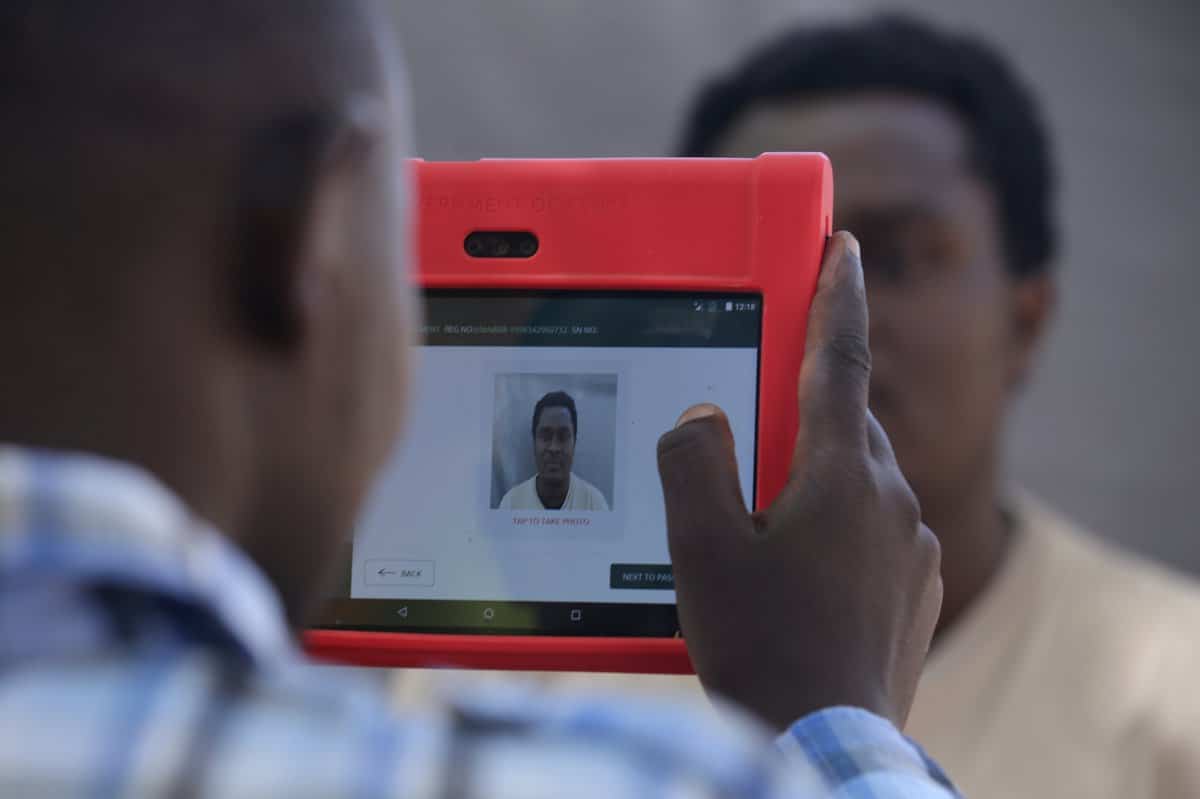Politics
EXPLAINER: Understanding ID Application Vetting

In Summary
- The vetting required applicants to provide extensive documentation, such as birth certificates of parents and grandparents, to prove their Kenyan citizenship.
- This applied to the Somali, Nubian, Arab, and Asians.
President William Ruto announced last week the abolition of the 60-year-old vetting process required to acquire a national identity (ID), particularly for individuals from certain communities.
These include Kenyans of Somali, Nubian, Arab, and Asian backgrounds.
The historic move was part of his campaign pledge, especially to the residents of the North Eastern region.
While signing the Presidential Proclamation on Registration and Issuance of IDs to border counties at Orahey grounds in Wajir Town, Ruto termed the practice as discriminatory.
“If it is about vetting, let all children of Kenya be vetted equally without any discrimination,” he said.
The vetting required applicants to provide extensive documentation, such as birth certificates of parents and grandparents, to prove their Kenyan citizenship.
ID application
For an ordinary Kenyan above 18 years, application for an ID involves some simple steps.
Application for the document is done at the National Registration Bureau offices countrywide which are usually located within County Comissioner’s offices or Chiefs camp.
At the National Registration Bureau office, you will fill out a form detailing your biodata after which your fingerprints and passport photograph shall be taken.
A waiting card will then be issued to the applicant upon successful application and shall be surrendered when collecting the processed ID card.
Previously, applicants would wait for up to a month but with the necessary reforms within the offices, it can be collected within 10 days.
Requirements for proof of age, names and place of birth are birth certificate, parent’s IDs, school leaving certificate, notification of birth, religious certificate and a letter from the area chief or assistant chief.
For late registration, you will need a sworn affidavit.
Vetting process
It was introduced in the 1990s as part of measures to curb insecurity, especially in areas bordering other countries as well as curb illegal activities but also to protect the interests and safety of local populations.
There were reports that the influx of foreigners in the country was a security threat.
These stringent vetting procedures were aimed at regulating the entry and stay of foreigners in the region.
It was also aimed at ensuring that newcomers were properly documented, screened for security risks, and had legitimate reasons for their presence.
During this process, applicants had to undergo vetting through local chiefs, assistant chiefs, or village elders who confirmed their identity and their family history.
This was particularly important because there was little documentation or formal record of birth.
Applicants also had to demonstrate they were Kenyan citizens by presenting birth certificates, school records, or affidavits from local leaders attesting to the person’s citizenship status.
There was also a process to ensure that the applicant did not have any conflicting identity or criminal history.
What the new decree means?
This directive now means that all Kenyan citizens, regardless of their ethnic or religious background, can now apply for national IDs without facing additional scrutiny.
This policy change, Ruto said, is aimed at promoting equality and inclusivity, ensuring that every Kenyan has equal access to essential services and opportunities.
A national ID is a vital document required for accessing services such as education, healthcare, and employment. Without them, individuals are effectively rendered invisible in the eyes of the state.
Kenya Insights allows guest blogging, if you want to be published on Kenya’s most authoritative and accurate blog, have an expose, news TIPS, story angles, human interest stories, drop us an email on [email protected] or via Telegram
-

 Grapevine1 week ago
Grapevine1 week agoAlleged Male Lover Claims His Life Is in Danger, Leaks Screenshots and Private Videos Linking SportPesa CEO Ronald Karauri
-

 Lifestyle2 weeks ago
Lifestyle2 weeks agoThe General’s Fall: From Barracks To Bankruptcy As Illness Ravages Karangi’s Memory And Empire
-

 Grapevine4 days ago
Grapevine4 days agoRussian Man’s Secret Sex Recordings Ignite Fury as Questions Mount Over Consent and Easy Pick-Ups in Nairobi
-

 Investigations2 weeks ago
Investigations2 weeks agoEpstein Files: Sultan bin Sulayem Bragged on His Closeness to President Uhuru Then His Firm DP World Controversially Won Port Construction in Kenya, Tanzania
-

 Investigations1 day ago
Investigations1 day agoMulti-Million Dollar Fraud: Three Kenyans Face US Extradition in Massive Cybercrime Conspiracy
-

 Investigations1 week ago
Investigations1 week agoEpstein’s Girlfriend Ghislaine Maxwell Frequently Visited Kenya As Files Reveal Local Secret Links With The Underage Sex Trafficking Ring
-

 News2 weeks ago
News2 weeks agoState Agency Exposes Five Top Names Linked To Poor Building Approvals In Nairobi, Recommends Dismissal After City Hall Probe
-

 Business1 week ago
Business1 week agoM-Gas Pursues Carbon Credit Billions as Koko Networks Wreckage Exposes Market’s Dark Underbelly




















